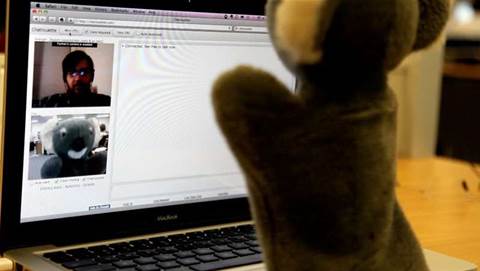A legal case against a school that used government-issue laptops to spy on its students has inspired a new bill to be introduced to ban video surveillance.
US Democratic Senator Arlen Specter proposed a new law on Thursday making covert surveillance via camera illegal.
The bill could require companies to either remove exisiting monitoring software which does this or devise contracts with staff to allow monitoring in certain situations.
“Technology is advancing quickly – often faster than our federal laws can keep up.” Senator Specter said.
“Cameras in computers and cell phones are ubiquitous, making it urgent that the federal Wiretap Act protect our citizens from unwarranted intrusions in their homes where there is a reasonable expectation of privacy.”
The case behind the law is that of Lower Merion School District (LMSD) in Pennsylvania, which is accused of using monitoring software in the Apple MacBooks it issues to students.
The case was brought by the parents of student Blake Robbins, who was disciplined for "improper behaviour in his home," based on images taken.
The software used the laptop's webcam to take pictures every 15 minutes, as well as to take screenshots, and sent them back to the school server.
The application was supplied by Absolute Software, which makes the popular Computrace laptop tracking software.
The defence motion [PDF] says emails submitted by the school show that staff were impressed with the performance of the software.
It was "a little LMSD soap opera," a member of staff is quoted as saying in an e-mail to Carol Cafiero, the school administrator running the program.
"I know, I love it," she replied.
The school had said it had activated the tracking software 42 times this year but only in the case of stolen or missing laptops.
Now it appears that the software was activated because Robbins' parents forgot to pay a $55 insurance fee and it was left on for over a fortnight, taking thousands of images.
The defence alleges that the school also deleted some of the images of Robbins when asked to hand over files and that one other student was monitored because he had a similar name to someone under investigation.
The family's lawyer said he had received statements from all school officials involved, apart from Ms. Cafiero, who exercised her Fifth Amendment right to silence.
The defence has asked for her personal computer to be examined.
“While we deeply regret the mistakes and misguided actions that have led us to this situation, at this late stage of the investigation we are not aware of any evidence that District employees used any LANrev webcam photographs or screenshots for such inappropriate purposes,” said the school district in a statement.




_(23).jpg&h=140&w=231&c=1&s=0)
_(33).jpg&h=140&w=231&c=1&s=0)





 iTnews Executive Retreat - Security Leaders Edition
iTnews Executive Retreat - Security Leaders Edition
 iTnews Benchmark Awards 2026
iTnews Benchmark Awards 2026
 iTnews Cloud Covered Breakfast Summit
iTnews Cloud Covered Breakfast Summit
 The 2026 iAwards
The 2026 iAwards










_(1).jpg&h=140&w=231&c=1&s=0)



